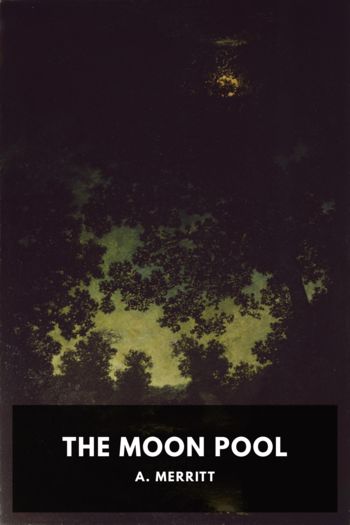How to Become a Witch by Amber K. (large ebook reader txt) 📗

- Author: Amber K.
Book online «How to Become a Witch by Amber K. (large ebook reader txt) 📗». Author Amber K.
Some traditions have a five-degree system, in which the entry level focuses on earth issues like prosperity and health, before students attain the earth degree. The next degree involves water issues like compassion, intuition, and silence. It’s followed by the fire degree, where they work on issues of power, purpose, and will; then they hone skills of intellect and imagination before being granted the air degree.Finally, they work on connection to Deity to attain the spirit degree.
Some traditions have only two categories of membership: non-initiates—Witches in training—and initiates. All learning beyond the initiate level is considered a deepening of one’s practice but is not recognized by any formal degree.
The colors of the cord
It is common for Witches to wear cords of different colors to mark their degree of initiation; different covens and traditions have different color schemes. Our own tradition has white cords for dedicants, green for first-degree initiates, red for second degree, and either silver (female) or gold (male) for third-degree initiates. Another tradition adds another color for each step up, not necessarily for degrees but for achievements, and their cords are eventually a multi-colored wonder. But when you meet someone in the Craft for the first time, you may have to ask what their cord color signifies.
Beyond their highest degree, most traditions encourage further training and deeper focus in a specialty or vocation within Witchcraft. No further degrees are granted within the coven, but Witches might earn academic degrees or certificates at an institution like Ardantane or Cherry Hill, or a secular educational program, or they might apprentice with a master in a particular skill. Some examples of Witch specialties or spiritual callings follow—or you may invent your own!
Spiritual VoCations Within Witchcraft
Activist: Some Witches are called to work for causes in harmony with the Craft: environmental issues, social justice, feminist legislation, the peace and anti-nuclear movements, and many more. Starhawk is the founder of the Reclaiming Tradition, known for its political activism with a spiritual, nonviolent slant. Activism can also occur in the context of the judicial system, as in the coalition that won Wiccan military personnel the right to have a pentagram on their headstones in the national cemeteries.
Animal Advocate: One whose energy is directed toward helping animals: as a worker at the local animal shelter, an animal communicator, an animal-rescue specialist, an animal rights activist, a veterinarian, a habitat restoration specialist, an educator, and more.
Artist/Artisan: The arts can celebrate and express the God and Goddess, and thank them for their gifts. The Craft includes visual artists, costume designers, ritual toolmakers, stained glass craftspeople, dancers, choreographers, and many other kinds of artists.
Bard: While the Craft does not have a formal designation for bards, as the Druids do, we do have many musicians, singers, storytellers, and other performing artists among our number. Some Witch musicians earn their living with concerts and CD sales, while others simply use their talents in ritual and celebration whenever called upon by the Pagan community.
Chaplain: A chaplain is a spiritual counselor in an institutional setting, like a hospital, military unit, retirement home, youth program, or prison. (The military currently has no Wiccan chaplain. However, perhaps the time has come, and you may be the first officially recognized Wiccan chaplain!) This requires a degree in counseling or theology and credentials such as those available through the Covenant of the Goddess. Some chaplains work with prison inmates, teaching them about Wicca, leading rituals or classes, and counseling on spiritual matters.
Communicator: Many Witches work to keep information flowing in the Craft community as newsletter or magazine editors, Internet forum hosts, website designers, bloggers, or radio hosts. Communication makes us a worldwide Craft community rather than a collection of isolated, vulnerable groups.
Community Leader: Coven leaders are usually known as high priestesses and high priests, though some egalitarian covens do not use the old titles. Some are spiritual guides to individual students or visionary leaders of the wider community. Many Witches serve as officers of regional and national organizations, and others teach and serve on a local council of elders when needed. Some act as meeting facilitators or conflict mediators to form a stronger, more interconnected community.
Deathwalker: These priestesses and priests serve as hospice chaplains, grief counselors, or psychopomps (who communicate with the departed and help them on their way to the next life). This requires specialized training, such as that available in the School of Shamanic Studies at Ardantane. This calling is not to be entered into lightly.
Diviner: These specialists use divination tools such as tarot cards, astrology, rune stones, palmistry, casting the bones, or other methods to help people find clarity when they are confused, learn more about themselves and their paths, see trends into the future, and explore their potential choices.
Earthwalker: These Witches live in a way that embodies the key values of the Craft in their family relationships, career, and community service. In a sense, they are working to live as Goddess and/or God incarnate on earth. Their skills in “the art of living on the material plane” provide inspiring role models to others.
Event Organizer: This is a specialization within the vocation of community leadership; organizers plan and operate local, regional, and national Pagan festivals, Pagan Pride Day celebrations, open sabbat celebrations, and more. Their efforts bring us together to build community, learn from one another, celebrate our heritage, and revitalize the Craft.
Guardian: This is a broad term for those who protect the community from harm. They are also called watchers, sentinels, safety personnel, security teams, Amazons, or peaceful warriors. Many train in the martial





Comments (0)